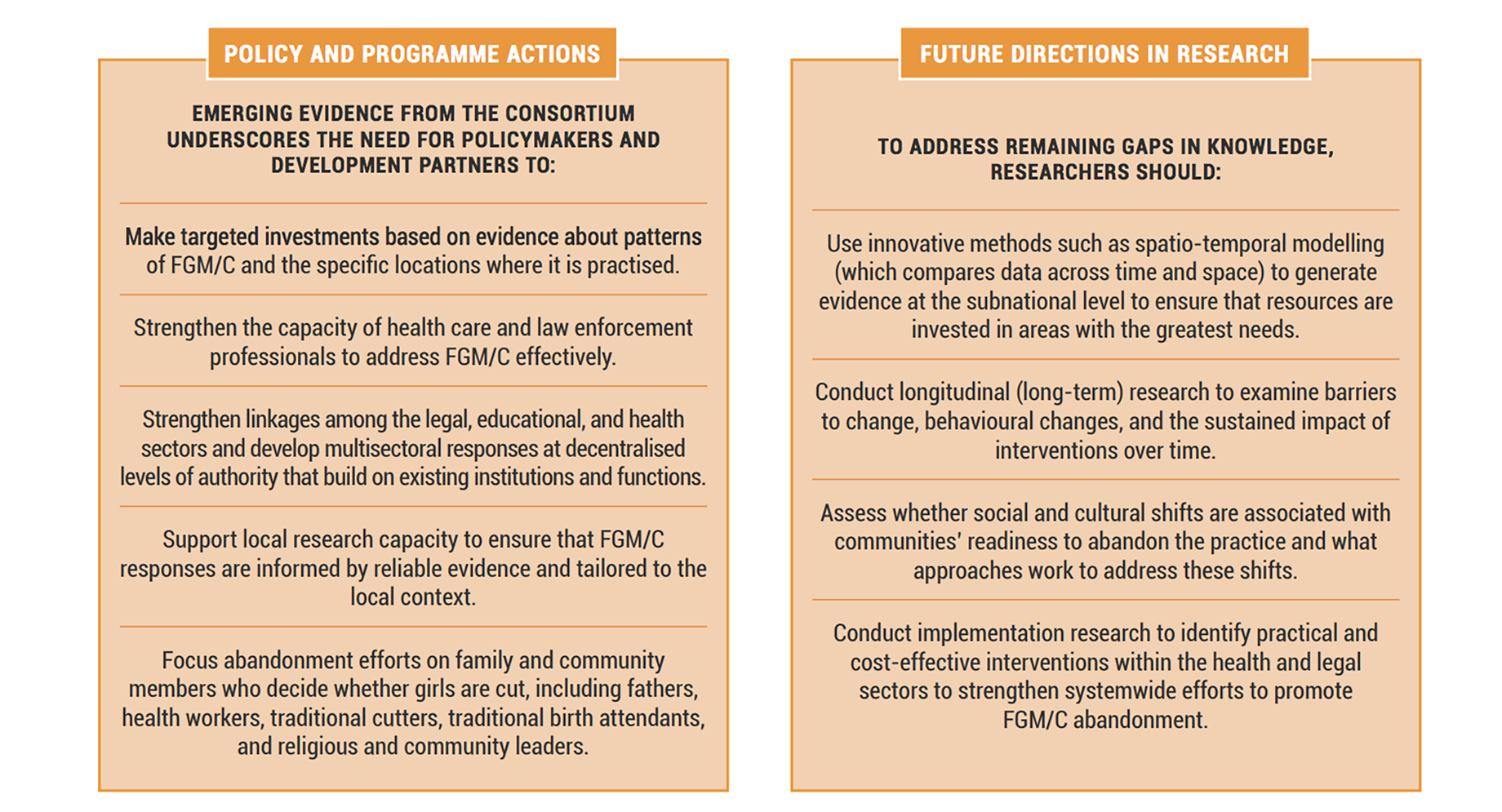
Female genital mutilation/cutting (FGM/C) is a harmful practice that involves cutting, removing, and sometimes sewing up external female genitalia for non-medical reasons. While considered a social norm in many cultures, FGM/C is a violation of the rights of girls and women and has no health benefits. It is estimated that more than 200 million girls and women have undergone FGM/C around the world, and approximately 3.6 million girls are cut each year.
To help address the gaps and accelerate a comprehensive, evidence-based response to ending FGM/C, The Evidence to End FGM/C: Research to Help Girls and Women Thrive project, an African-led research consortium, generated high-quality evidence to influence strategic investments, policy, and programs to eliminate FGM/C. This project worked in eight African countries—Burkina Faso, Egypt, Ethiopia, Kenya, Nigeria, Senegal, Somalia, and Sudan—to dramatically expand the body of high-quality evidence on the most effective approaches to ending FGM/C in different contexts.

The research program was organized around four themes:
- Building the evidence base of where, when, and why FGM/C is practiced through explanatory analyses of existing survey datasets and qualitative studies among various populations at different stages of abandoning the practice.
- Assessing a range of interventions to address FGM/C abandonment, utilizing a blend of retrospective assessments and case studies of ongoing interventions.
- Understanding the wider impacts of FGM/C on the lives of girls, women, and their families, and the implications for gender norms and relations in abandoning the practice—as well as other harmful practices such as early marriage and gender-based violence.
- Improving research on FGM/C by:
- Addressing the challenges of ethically and accurately measuring prevalence and FGM/C status
- Improving the definition and measurement of social norms and norms changes
- Enhancing the application of “theory of change” to research and to informing programming and evaluation designs on FGM/C abandonment
- Increasing the rigor, relevance, and utility of scientific descriptions of FGM/C interventions and their evaluation
Through high-quality research and creation of a vibrant South–North research consortium, the project addressed some of the most important challenges in measuring FGM/C and abandonment interventions. A substantial portfolio of robust knowledge and evidence (43 studies) has been generated. Key lessons from this work include:
- Understanding local variations in FGM/C is essential for focusing investments and tailoring abandonment programs
- The practice of FGM/C and its social and cultural underpinnings are changing
- The health sector can play a central role in preventing and responding to FGM/C
- Laws are necessary but require social legitimacy to be effective
The program developed innovative research methods to improve FGM/C measurement and use of data, including through nationally representative surveys, and strengthened the cadre of African researchers with the capacity to generate rigorous, relevant evidence for policy and programming on FGM/C. The country-level presence of the program provided a strong platform for networking and sustaining relationships with key partners and stakeholders, including with the UNFPA-UNICEF Joint Programme on FGM/C: Accelerating Change and The Girl Generation.
The consortium has also improved the capacity of national and regional stakeholders to engage with and respond to the FGM/C evidence needs, and the resulting body of knowledge and evidence is helping to shape FGM/C investments, policies, and programs to be more impactful and scalable.

